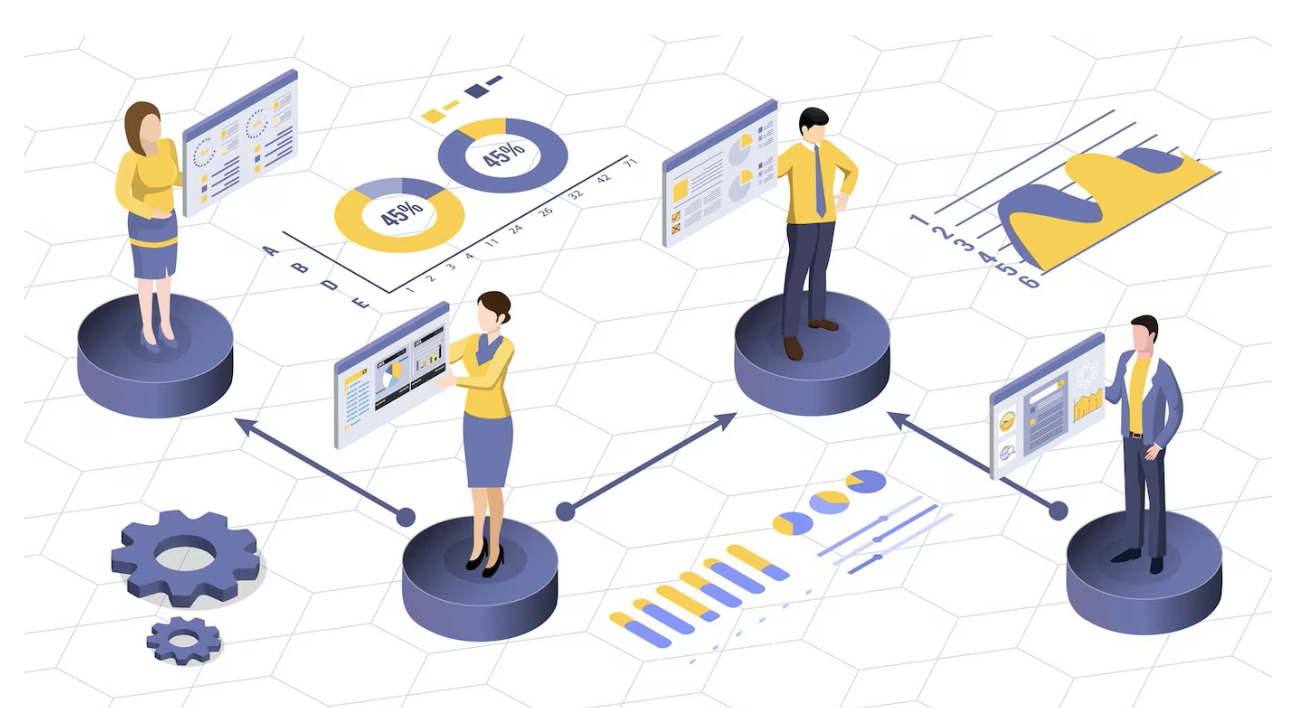Business intelligence platforms are essential in today’s organisations. They allow you to organise and analyse data to make smarter decisions. There are numerous BI platforms available in the market, and choosing the right one for your organization can be a daunting task. The following are some of the best BI platforms to help you make the right choice.
Tableau Software
Tableau Software is the world’s leading business intelligence company, helping more than 80,000 customers get insights from their data. Founded in 2003, Tableau helps anyone see and understand their data. Its easy-to-use tools and visual analytics capabilities empower people at every level of an organisation to analyse data and share their insights with their colleagues and clients.
With Tableau’s self-service business intelligence platform, users can drag-and-drop to build and share dashboards in minutes, enabling them to easily communicate complex information and make faster, data-driven decisions. Their customers include Facebook, Netflix, Nike, Uber, and more.
Pros: Visually stunning and easy to use; broad set of connectors; works well with Excel and other data sources; plenty of training and demos available for new users; excellent customer service; and free version available.
Cons: Not cheap compared to other options; only web-based; steep learning curve for new or inexperienced users; not the most secure option.
Oracle Analytics Cloud
Oracle Analytics Cloud is a cloud-based advanced analytics platform and software that makes it easy for businesses to turn data into actionable insights that deliver measurable business results. As one of Oracle’s leading products in the $36 billion applications market, Oracle Analytics Cloud helps organisations of all sizes transform the way they use data to drive value through improved operational performance, enhanced customer interactions, and better decision-making across every part of the organisation.
Pros: Intuitive interface; streamlined workflow; comprehensive features for data collection, analysis, visualisation, and reporting; a powerful, scalable solution with customisable security and permissions.
Cons: Expensive upfront cost; may require additional licenses depending on your needs; complicated setup process for novice users; complex architecture.
Power BI
Power BI is a cloud service for creating and sharing real-time reports with dashboards and visualizations that help your organisation unlock insights from your data. Power BI is a powerful business intelligence platform that connects with hundreds of data sources to help you turn that data into action quickly – helping you make better business decisions and drive growth for your organization.
Pros: Highly customisable; built-in security and collaboration tools; drag-and-drop report builder makes it easy to create and modify reports; wide range of data sources and connectors available; intuitive interface makes creating reports a snap.
Cons: Does not work well on a mobile network; no option for offline viewing of data; only limited free version available.
QlikView
QlikView is a business intelligence platform that offers a unique data discovery experience. It provides an interactive and intuitive user interface that makes it easy for users to access and analyze data. QlikView also offers advanced analytics, collaboration tools, and a range of visualization options. It is suitable for large organizations and can handle massive amounts of data with ease.
Pros: User-friendly interface and easy-to-use visualization tools, supports data from multiple sources, provides real-time insights, and integrates with other software, such as Excel and SAP, to provide a comprehensive solution.
Cons: The software can be expensive, some advanced features can be complex to set up and use, may require additional hardware to support large data sets and multi-user access, and has limited mobile app support compared to other BI tools.
IBM Cognos Analytics
IBM Cognos Analytics is a comprehensive business intelligence platform that offers advanced analytics, data visualization, and reporting capabilities. It is suitable for large organizations and provides a wide range of features that can be customized to meet specific business requirements. IBM Cognos Analytics integrates with various data sources and offers a collaborative environment for team members to work together.
Pros: Offers a comprehensive solution for data analysis, reporting, and visualization, supports data from multiple sources, provides real-time insights, and offers advanced analytics capabilities, including predictive analytics and data mining.
Cons: Can be complex to set up and use, especially for users with limited technical expertise, some advanced features can be difficult to understand and use, may require additional hardware to support large data sets and multi-user access, and may have limited integration with other software and tools.
Navigate Different Business Intelligence Platforms Easily
Choosing the right business intelligence platform for your organization requires careful consideration of your business requirements and the capabilities of each platform. Unlock the power of data with our comprehensive Business Intelligence and Data Analytics courses. Enhance your skills and gain valuable insights to drive business success. Check out Habanero Data Solutions’ complete list of Data Analytics and Business Intelligence courses.


